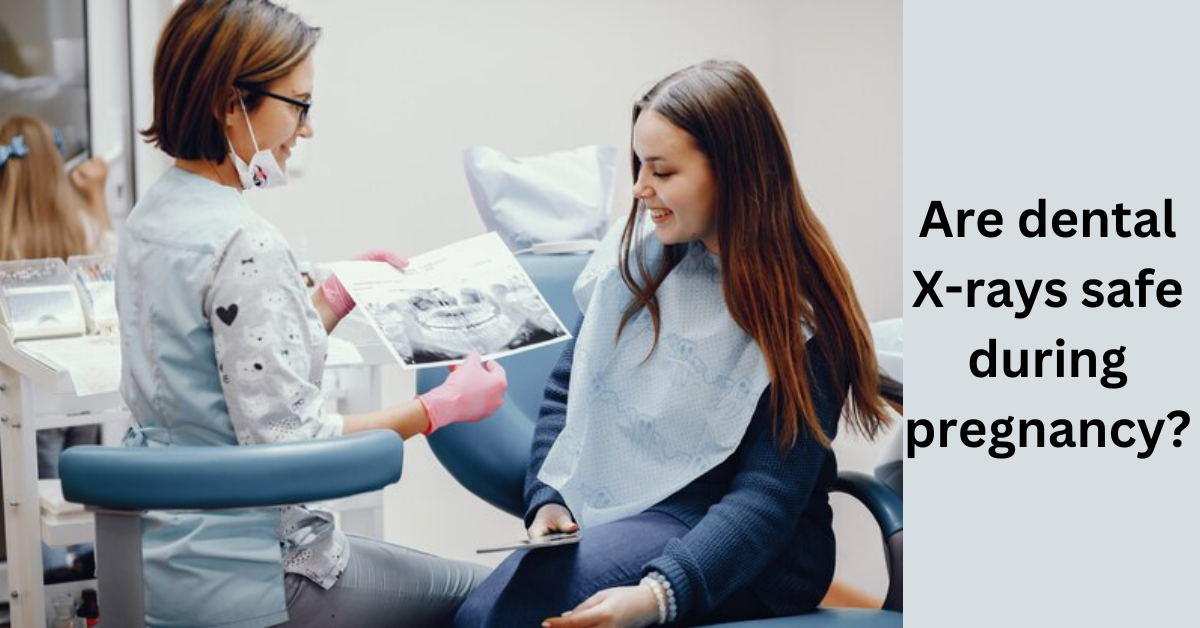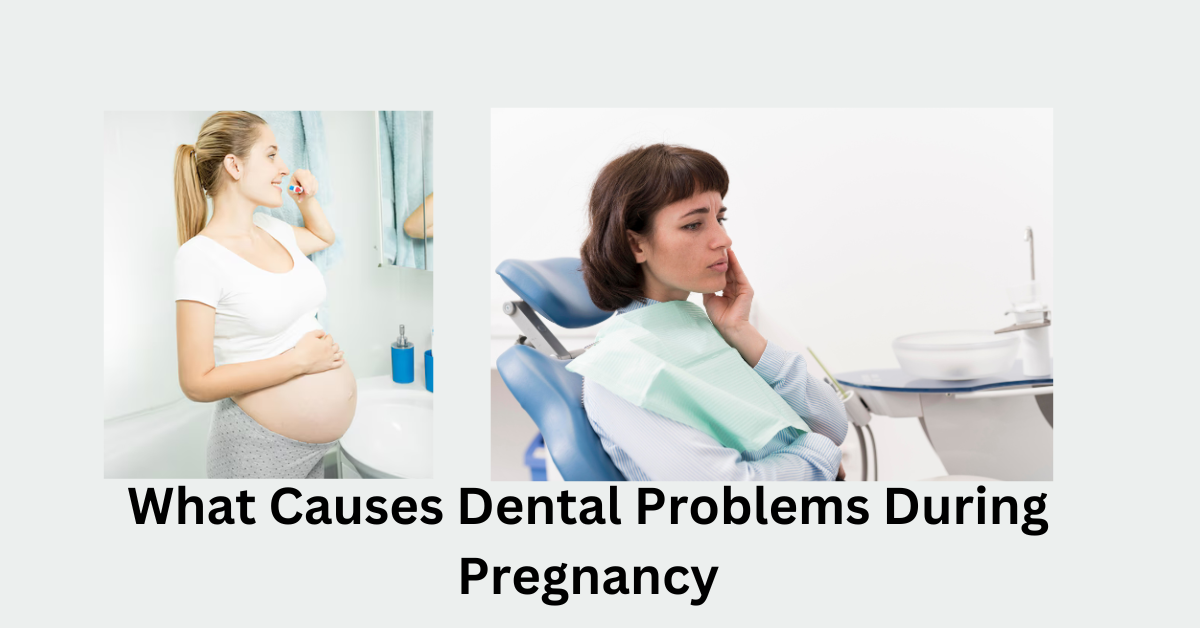Introduction
Taking care of your dental and oral health is vital, especially when you’re pregnant. Changes in your body during pregnancy can affect your mouth, teeth, and gums, leading to potential oral health problems. Hormonal shifts increase the risk of gum disease, which can escalate to more severe issues if untreated. Poor oral care might even contribute to preterm birth, with preterm babies facing more health problems than those born full term.
Focusing on your general health and providing adequate prenatal care is essential for ensuring a healthy pregnancy and the optimal health of your child. Regular medical care and visits to your dentist can prevent complications and keep your gums and teeth strong throughout the nine months. These steps aren’t just about your comfort, they’re about creating the best start for your baby.
How does pregnancy affect your dental health?
During pregnancy, hormonal changes, including higher levels of progesterone and estrogen, can affect your teeth, gums, and overall oral health. These hormones may lead to gingivitis, causing redness, swelling, and bleeding gums. If untreated, this can progress to periodontal disease, which damages the tissues and bones supporting your teeth. Issues like cavities, tooth decay, and caries are also more common during this time due to shifts in eating habits, especially cravings for certain foods. Some people may even develop pica, a condition where they eat ice or non-edible items, increasing the risk of dental problems.
Frequent vomiting from morning sickness or NVP exposes your teeth to harmful stomach acid, weakening the enamel. Improper brushing or skipping flossing due to tender gums or nausea can worsen the buildup of plaque, leading to more infection and dental care challenges. Treatments such as mercury-free fillings are safe during pregnancy, but caution is needed with dental amalgam, which contains silver fillings, mercury, and other metals that can be toxic to you and your baby. High mercury exposure is linked to complications like miscarriage, preeclampsia, and low birthweight. Always consult your prenatal provider and dentist to manage oral health problems effectively.
What are the various signs and symptoms associated with dental concerns during pregnancy?
During pregnancy, numerous changes occur in your body, some of which may impact your dental care. Hormonal shifts may lead to red gums that feel swollen, tender, or even shiny. These changes can make your gums more likely to bleed easily. You might also notice bad breath or mouth sores. Sometimes, loose teeth, new spaces between your teeth, or lumps on your gums could appear. If your gums pull away from your teeth, exposing the roots, or if you see pus along the gumline, these could be warning signs of an infection.
I remember speaking with a prenatal provider who emphasized paying attention to even minor symptoms like a toothache or pain. Ignoring these could lead to swelling and worsen the condition. Quick treatment is essential to help prevent problems that could impact both you and your baby. If you’re feeling dizzy, battling a sore throat, or even noticing coughing alongside these dental concerns, it’s best to visit your dentist promptly for proper care.
How can you prevent dental problems during pregnancy?
Keeping your teeth and gums healthy while you’re pregnant is essential for both you and your baby. Frequent dental examinations can facilitate the prompt identification and treatment of any emerging dental problems. During pregnancy, changes in hormones can increase the risk of gum issues, such as gingivitis, which may worsen if left untreated. Your oral health also connects to your overall health, so it’s important to let your prenatal care provider know about any concerns.
To reduce potential complications, always inform your dentist if your pregnancy is considered high-risk, if you’re on any prescription, over-the-counter medicine, or taking herbal supplements. A chronic health condition can further increase the risk of dental issues, making cleanings and preventive measures even more vital. Following professional advice helps you avoid any harm to yourself or your baby.
Are dental X-rays safe during pregnancy?
When you’re pregnant, you might wonder if dental X-rays are safe. It’s important to know that dental X-rays are commonly used in dental care to detect problems with your teeth, gums, and the bones around your mouth. These X-rays use small amounts of radiation, which is a form of energy that can be harmful to your health if you’re exposed to too much. However, when used properly, dental X-rays are generally considered safe during pregnancy.

For the protection of both you and your baby, your dentist will drape you with a designated apron and collar during the X-ray examination. It’s essential to inform your dentist if you are pregnant or trying to get pregnant so they can take the necessary precautions. This extra care ensures that you get the dental treatments you need without putting your baby at risk.
How are dental problems treated during pregnancy?
If you’re pregnant and have a dental problem, it’s essential to discuss your condition with your dentist. Depending on the severity, you may need to wait until after your baby’s birth for treatment. However, some treatments are safe during pregnancy, like pain relievers and antibiotics to treat infections. If prescribed, always inform your prenatal care provider before taking any medicine.
For more localized treatments, local anesthesia can be used to numb the mouth for procedures like fillings or having a tooth pulled. This anesthesia helps to prevent pain and is safe for both you and your baby. If the treatment isn’t urgent, like elective dental care, it’s best to schedule it in your second trimester or after you deliver to avoid any risks.
What actions can you implement to assist in the prevention of dental complications?
To help prevent dental problems during pregnancy, it’s important to take good care of your mouth and follow a healthy routine. Start by brushing your teeth with fluoride toothpaste and flossing regularly to remove plaque. If you have difficulty brushing because of vomiting, rinse your mouth with a mixture of baking soda and water to help neutralize the acid. Avoid sugary foods and drinks that can harm your teeth, and choose healthier options like fruits, vegetables, lean meat, whole-grain breads, and low-fat dairy to nourish both you and your growing baby.
It’s essential to have regular checkups with your dentist, especially when you’re pregnant. Also, let your provider know if you’re experiencing unusual cravings like ice, paste, or dirt, as this can be a sign of a deficiency. Lastly, avoid smoking, as it can harm both your health and the development of your baby’s teeth. If you need help quitting, reach out to your health care provider or call 1-800-QUIT-NOW for guidance.
Always tell your dentist if you are pregnant
When you’re pregnant, it’s essential to tell your dentist about your condition during your checkup. Pregnancy can lead to alterations in your body that may influence your oral cavity and overall dental well-being. For example, increased levels of certain hormones can make your gums more prone to inflammation and bleeding, which can lead to gum disease if left untreated. Furthermore, pregnant women often experience cravings for sweets or ice, both of which can lead to cavities if oral hygiene is not maintained.
It’s important to understand that sugary or acidic foods and drinks like citrus fruits or sodas may create an acidic environment in your mouth. This acid has the potential to wear away tooth enamel, thereby increasing the vulnerability of your teeth to decay. To neutralize this acid, you might want to rinse with water or use a baking soda paste. Additionally, maintaining a diet rich in calcium, protein, phosphorus, and vitamins like A, C, and D can help support both your health and the development of your growing baby. If you’re concerned about what to eat, discuss foods with your healthcare provider. In some cases, you may also need prescription treatments or specific over-the-counter products for safe oral care during pregnancy.
Vomiting can damage teeth
During pregnancy, frequent vomiting or morning sickness can be a real concern for your teeth. The stomach acids that come up during vomiting can cover your teeth and damage the enamel, making them more vulnerable to decay. These acids are strong and can soften the enamel, especially when you brush immediately after vomiting, which can cause further damage. It’s important to rinse your mouth with water or a mouthwash that contains fluoride to help protect your teeth. Using a little toothpaste with fluoride after rinsing can also help, but be sure to wait an hour before brushing to avoid scratching the softened enamel.
If you’re pregnant and dealing with persistent vomiting, it’s a good idea to speak with your health provider about strategies for managing the condition. They may recommend over-the-counter treatments or even prescription options to keep your teeth safe. Maintaining a healthy diet with calcium, protein, and essential vitamins like A, C, and D, along with whole-grain foods, lean meat, and low-fat dairy, will also support your dental and overall health during this time.
Increase your calcium during pregnancy
During pregnancy, it’s essential to increase your intake of calcium to support both your bones and the growing baby inside you. Calcium is crucial for developing healthy teeth and bones, and it also helps protect your own bone health. Good sources of calcium include milk, cheese, and yoghurt, or sugar-free fruit yoghurt. If you are unable to consume dairy, consider calcium-fortified alternatives such as soy, almond, or other plant-based milks and cheeses. Look for products that are low in added sugar to keep your diet healthy and balanced.
In addition to dairy products, you can also include nuts, especially almonds, in your diet to help meet your calcium needs. These nuts are a great alternative if you’re looking for a snack that provides extra nutrients without the added sugars found in some processed foods. As you continue through your pregnancy, ensuring that your diet includes these calcium-rich foods will not only help meet the developing needs of your baby but also strengthen your own body. Make sure to eat and drink enough calcium-rich foods every day to protect both your dental and overall health.
Increase your vitamin D during pregnancy
During pregnancy, your body undergoes many changes, and one important thing to keep in mind is maintaining proper vitamin D levels. The role of vitamin D is significant in facilitating the absorption of calcium, which is necessary for the strength and health of teeth and bones. Getting the right amount of sun exposure can help boost these vitamin D levels, but it’s important not to get sunburnt. For a safer option, try incorporating food sources of vitamin D into your diet, such as fatty fish like salmon, herring, and mackerel. If you’re pregnant, make sure to talk to your doctor about how much fish is safe to eat.
In addition to fish, other good sources include eggs, margarine, vitamin D fortified milk, and even breads and cereals. If you’re not getting enough from your diet, it may be a good idea to consider vitamin D supplements after consulting with your obstetrician. They can help ensure you’re getting the proper nutrition to prevent any deficiencies, which can directly affect your health and the health of your baby. A nutritionist can also guide you on how to safely take supplements and maintain proper levels to support overall calcium absorption.

